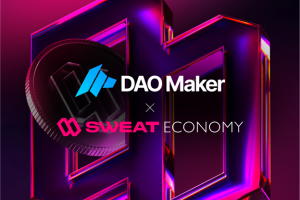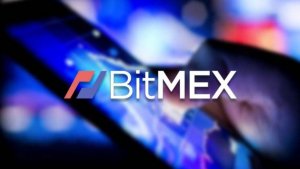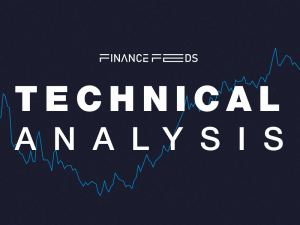Sweat Economy – which pays you for working out – launches Web3 token on DAO Maker
Move-to-earn app Sweat Economy will host a Web3 token sale for its new cryptocurrency as it bids to scale its ecosystem dedicated to incentivizing healthier living by rewarding people for their movement

The fundraising event will be held on DAO Maker’s launchpad and coincides with the startup’s plan to unveil its new Sweat Wallet product. Earlier in June, the team behind Sweat Economy completed a $13 million funding round, including a private token sale, to accelerate their move into Web3.
The fresh capital will be used to bootstrap Sweat Economy’s blockchain app that aims to inspire users to improve their health through staying active. In doing so, they earn in-app tokens for physical activities like jogging or walking their dog, which can be then redeemed for products, services and donations.
The funds will also go towards further transforming the app into the Web3 on-ramp for health and fitness enthusiasts.
With a transition to Web3, Sweat Economy wants to onboard the next billion users to crypto through introducing its community-facing token, SWEAT, which will become the new currency for the app that users can earn through daily movement.
Launched in 2016 as Sweatcoin – recently rebranded Sweat Economy – the app boasts over 110 million global users, and the trend appears to be gaining traction. It has been the number one most downloaded health and fitness app of 2022, having spent time as the top overall app in 58 countries.
Under the hood, the app incentivizes people to get more active through its native ‘sweatcoins,’ dubbed “Airmiles for steps” that can be redeemed for branded products, digital services and charitable donations. In Q1 2022 alone, Sweatcoin users redeemed their sweatcoins for over $70 million worth of goods and services.
For now, users are able to hold their SWEAT tokens within the app. Once the token generation event (TGE) completed, they can easily trade, sell, transfer and even gain access to DeFi yield opportunities against their tokens at a fraction of cost. The tokens will eventually be able to be taken outside the app and used for saving, staking and purchasing NFTs.
“We have been planning the launch of SWEAT since 2016, when we first thought about creating currency out of movement. We are delighted the day is finally here, yet we know that the launch is just the beginning. We cannot wait to keep building a product people love, to expand and develop a true open economy of movement, and thereby inspire everyone, around the globe, to move more,” said Oleg Fomenko, co-founder at Sweat Economy.
After branding, DAO Maker is now scaling
The SWEAT token sale will be hosted by DAO Maker, a multi-investment platform that allows retail investors to participate in a variety of public, private, and seed rounds of funding. By funding through a decentralized autonomous organization, or DAO, the risks for both parties, investors, and startups are significantly reduced.
DAO Maker provides an entire ecosystem for promising projects to take their business to the next level, all the while enabling anyone to participate in backing the rapidly growing number of potentially game-changing projects.
DAO Maker Launchpad also vets each project’s offering thoroughly, ensuring users will find audited investment vehicles where they can be assured that their funds are in safe hands. Entrepreneurs, in turn, would leverage this assurance to open up a larger pool of resources to support their projects with liquidity bootstrapping.
“The selection criteria is rigorous, with a focus on high potential projects or startups with a strong established user base. Sweat Economy has one of the highest user tractions ever among tokenized products. This gives it a brilliant fit for DAO Maker launch criteria,” said Hatu Sheikh, CSO and CMO at DAO Maker.









